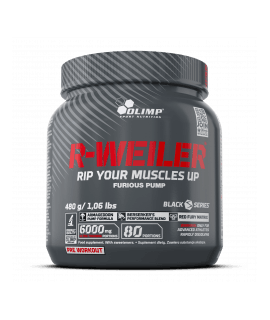Pre-workouts are one of the most popular dietary supplements that are intended for use before an intense physical exercise. Usually, they have several or a dozen different ingredients. They work comprehensively, and therefore they offer support in terms of both physical and mental effort. They maximize exercise capacity, reduce fatigue, increase endurance and muscle strength. They also facilitate overcoming barriers and make us able to give a lot more than we thought during the training.
The market of pre-workout supplements is developing extremely fast, and the manufacturers are outdoing themselves in developing new formulas. Our store offers several hundred different pre-workout preparations. The key to success is choosing a product that is best suited to your individual needs.
To help you orientate yourself in the latest trends and to make a good choice, the pre-workouts offered were divided into several different categories. People who take their first steps in sports are encouraged to get acquainted with the pre-workout offer for beginners. More experienced athletes are invited to the section with advanced supplements. The representatives of the fair sex will also find something for themselves.
We overcome the stereotype that the role of pre-workout is limited only to strong stimulation of the nervous system. Our offer includes a wide selection of stimulant-free pre-workout supplements.



















